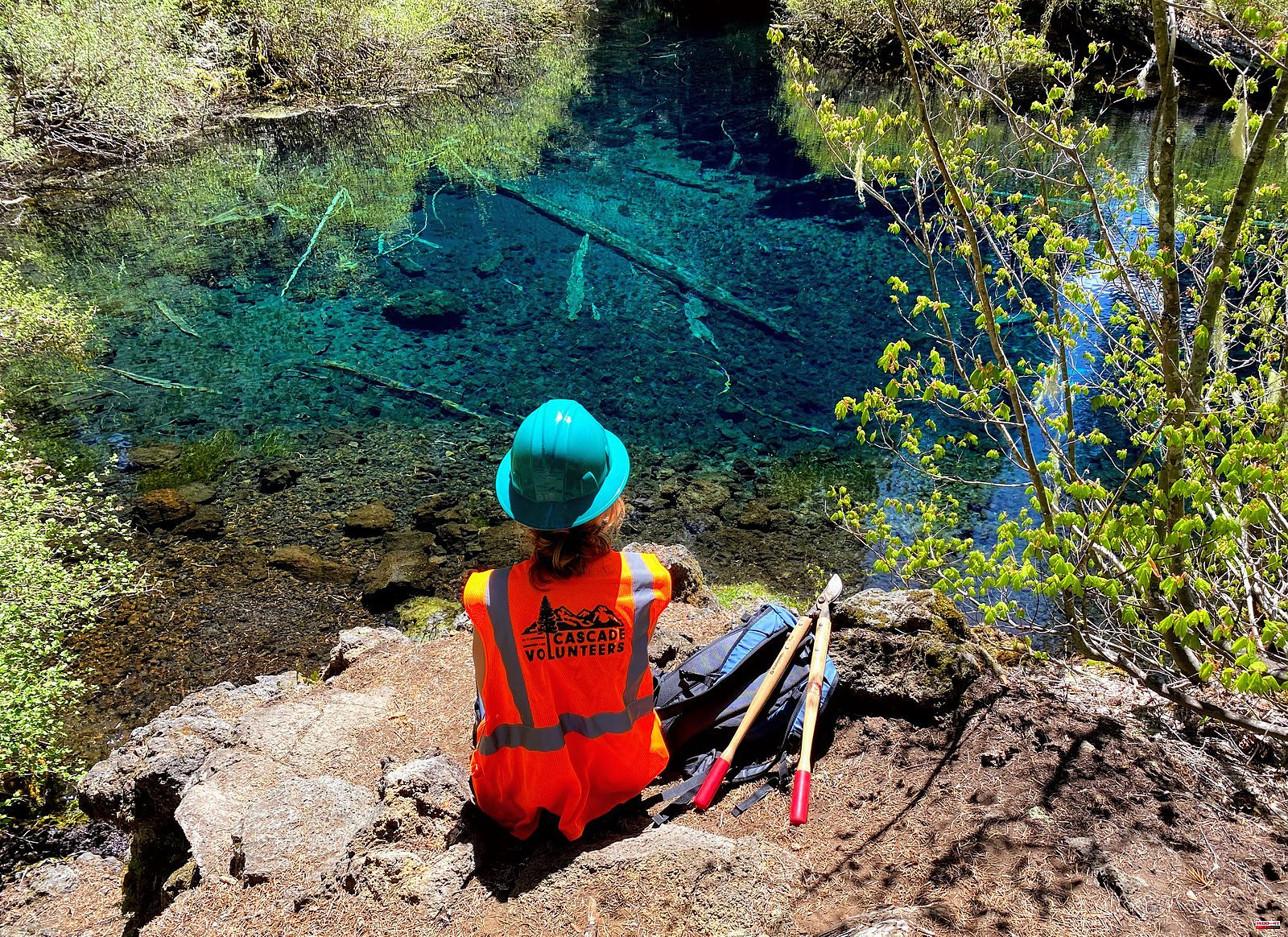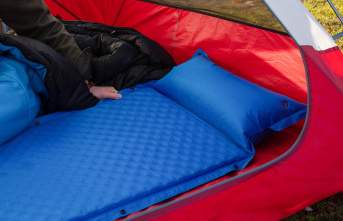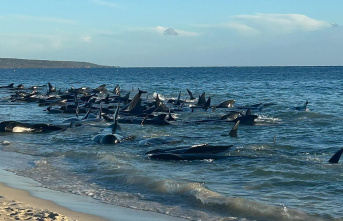Jean Carideo, a Chesapeake resident, spent seven miles on Chincoteague Island just before the Covid-19 pandemic. It is a barrier island that measures seven miles long, located at the northeastern tip on Virginia's Eastern Shore. Together with other Road Scholar participants, she helped to remove barbed wire from salt marshes. This was a threat to the island’s wild horses.
Carideo points out that while it is one thing to hear, read, or see about ecological dangers, it's quite another to actually do something about them, along with others who are also interested.
These regenerative tourism projects, such as the one on Chincoteague Island, are becoming more popular. Six international travel agencies, regrouping following the global pandemic that had almost halted leisure travel, created the Future of Tourism Coalition in June 2020. Their goal was to reduce "extractive tourism," which is the destruction of areas due to overcrowding, and transform the tourism model to benefit vulnerable people and places. Vacations can be booked by travelers who are eager to help others.
Jeffrey Skibins is an associate professor of recreation and park management at East Carolina University, Greenville, North Carolina. He has seen many tourists actively looking for ways to help restore natural areas damaged by floods, fires, and pollution. This is good news for both nature and small communities that depend on tourism. Skibins states that the ability to connect natural areas, tourism, and individual tourists creates a powerful synergy which can yield long-term conservation benefits.
The concept of regenerative tourism is not new. The Sierra Club started offering volunteer service trips in the 1950s. Earthwatch has been pairing researchers with volunteers since 1971. Tourists who embark on these adventures usually sleep in cabins or huts, with meals prepared over campfires. Regenerative travel is a new form of service and education that responds to the need for tourism in economically-strapped regions.
Regenerative tourism offers both personal and environmental benefits.
Skibins states that many tourists feel a deeper sense of personal satisfaction and a closer connection to nature after regenerative tourism experiences. Skibins adds that tourists can also learn about conservation issues through participation in habitat restoration and wildlife monitoring. These behaviors can be carried on at home.
Carideo, back in Chesapeake found she was missing Chincoteague Island time. She was soaked and dirty. In her post-trip evaluation, she stated that she was missing the work, refuge and the sense of community she gained while working with others on meaningful tasks. "I returned feeling more positive about people and aware of the value and satisfaction of doing good in the world."
These are just a handful of the many options available to tourists in the United States who want to experience adventure travel with boots on the ground.
The Coral Restoration Foundation was founded in 2007 and has worked to restore Florida's Coral Reef. It is a barrier reef that stretches 360 miles from north to Miami, to the southerly Dry Tortugas. This barrier reef is the only one in the continental U.S. The Coral Restoration Foundation offers Florida-based diving programs that offer the chance to restore corals to threatened reefs. Participants can go to Carysfort Reef, Florida Keys. There, the Foundation has a showcase site and the second largest Coral Tree(tm), Nursery. This forest contains floating structures made by humans on which fragments from staghorn, boulder, and elkhorn corals can be hung to grow to the size that is needed to plant the reef.
After receiving hands-on training, visitors go on two dives with a diver to clean and plant corals. The Foundation adapts the program to suit divers of all levels. Alice Grainger is the Foundation's communications director. She says, "You will be joining CRF divers to physically attach young coral colonies onto the reef." "You will prepare coral reefs for new corals by removing algae from the limestone substrate (skeletal remains of corals that once thrived here). This is done to avoid injury to curious blennies. Then, you'll secure the corals in their new habitat using squishy blobs non-toxic marine epoxy.
This outfitter is based in Portland and offers luxury weekend travel, adventure, and lodging near Central Oregon's McKenzie River. Many hills and forested areas were destroyed by the 2020 Holiday Farm Fire that scorched 173,000 acres. It also destroyed Blue River, along with many popular hiking and biking trails, and a beloved campground. After a Friday lunch at a local eatery, participants will explore the area and then enjoy a group dinner. A community organization will host a campfire and tell stories. Saturday morning guests will help to restore trails that have been damaged by overuse, such as the McKenzie River Trail.
Kieron Wilde founded First Nature in 2013 and says that "in the spring, there is a little window when we can actually plant actual plants which are really rewarding" You get that long-term connection when a tree is there for 50+ years. A tree you can return to and see.
Participants can choose to go on a guided mountain bike ride or river rafting after a morning of volunteering. A second group dinner allows guests to hear directly from business owners in the area about the effects of wildfire on the region. This information becomes even more relevant after spending the morning helping to reduce the damage caused by wildfire. Wilde says, "It's all about engaging with the community on a deeper level and encouraging a sense of responsibility."
The Seattle-based company offers trips around the globe, guided by the principles "Learn, serve, and Immerse." Global Family Travels hosts a three day "Regenerative Adventure" in the North Olympic Peninsula of Washington.
After enjoying a Northwest-inspired meal at a luxurious hotel, participants will complete four hours of salmon habitat restoration work on the Elwha and Dungeness Rivers the next day. Dam removal is the return of salmon to these waters, but it also requires manufactured log jams and riverbank re-vegetation to make the area more welcoming. Both projects are carried out by volunteers. The recovery work is discussed by community partners, with a focus on stories from local residents and organizations that are working to restore vitality in the region. After learning about the history of the Jamestown S'Klallam Tribe, which relied heavily on salmon for its food, guests take a guided hike.
Global Family Travels founder and CEO Jennifer Spatz explains that Global Family Travels works with two non-profits on the Olympic Peninsula: the North Olympic Salmon Coalition (NOSC), and the Lower Elwha Klallam Tribe River Restoration. "Depending on when you register, we'll either plant trees along the Dungeness River (NOSC) or pull invasive species along the Elwha River. We will also learn about the natural habitat and importance of salmon in Native culture."
Hands Up Holidays offers eco-luxury vacations which combine volunteering with sightseeing around the globe for 16 years. Visitors will stay at Cavallo point Lodge, at the foot the Golden Gate Bridge, during their eight-day San Francisco adventure. Visitors are given a private guided tour of San Francisco, Napa Valley, or Sonoma. They also get to explore native coastal ecosystems such as sand dunes, prairies, and other natural features. Participants help to restore the unique San Francisco coastline habitat on days three through five. Participants plant, weed, maintain trails, and collect seeds.
Christopher Hill, the founder of this company, says that there is always something to learn and see in the region. He notes that you can work with endangered and rare plants such as San Francisco wallflower, dune tanninsy, and San Francisco gum plant. You can watch a brown pelican dive in the surf, or train your ears for songbirds nesting within the native scrub. More than 100,000 plants have been planted. There is still much to do to preserve and sustain the amazing native coastal ecosystems.
Road Scholar is a pioneer in educational travel, having been around since 1975. Carideo attended the "Chincoteague Service Learning" program, which invites travelers to spend a week at the Virginia islands of Chincoteague or Assateague helping with various projects. Participants will be able to clear and repair woodland trails and walkways, and can clean up undeveloped beaches. They may also help preserve historic sites or work with the Chincoteague National Wildlife Refuge's collection of artifacts.
Volunteers can help preserve the islands' history, culture, wildlife habitats, and medical facilities. You can get a close-up view of the wildlife on barrier islands, including the famous wild Chincoteague ponies. Carideo relates the hours spent in a marsh removing rusty barbedwire while wild horses stood close by. She says that photos show how happy she is, even though her waders leak and we still smell like the marsh at the end.












